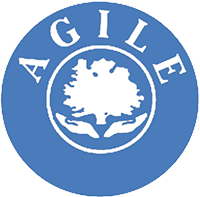The FLEXI Study, funded by NIHR Arcs in collaboration with NIHR ARC East Midlands, NIHR ARC Greater Manchester and NIHR ARC South West Peninsula, started in Oct 2021.
After finding that FaME works in the ‘real world’ but is less effective when not delivered with fidelity (the PhiSiCAL Study in the East Midlands), this study aimed to look at factors affecting adoption in new areas and spread in Devon and Greater Manchester, with a look back at East Midlands to see how things had changed since the original implementation study.
Results so far…
FLEXI has found that the adoption, implementation and spread of FaME into community settings is complex and faces multiple health system challenges. The FaME programme must be able to demonstrate how successful it is in reducing falls for older adults (this is often determined by internal service evaluation). But this is often lacking data as PSIs are often paid on an hourly basis to deliver the session but not do the pre-exercise assessments or follow up assessments so these are often being done adhoc at the end of a session. The spread of the FaME programme within organisations and into new regional areas was dependant on the input of commissioners passionate about fall prevention. Commissioners were required to support this role out and provide funding, whilst also ensuring that there was a sufficient expert instructor workforce available to deliver FaME.
The good news is that in these new areas of spread (Devon) and in areas where FaME has been running for some years (Greater Manchester and East Midlands)
- The collection of routine class data across three regions in England demonstrated that FaME was associated with benefits for participants at 12 and 24 weeks of the programme.
- Those benefits included improved balance and mobility and reduced falls.
- Programmes that provided higher ‘dose’ (i.e. ran over 24 weeks rather than 12 weeks) found that older adults experienced greater improvements in balance and mobility and were less likely to be concerned about falling again.
What difference does this knowledge make?
We have worked collaboratively with the Health Innovation Networks, local Integrated Care Systems and Combined Authorities to study ‘spread in action’. As a result, in one of our areas (Devon), where we have applied AHSN-based spread methodology, we have seen a near trebling of available programmes from 13 to 41 (without intervention costs from the study).
The study has highlighted the need for an increased frequency of local Quality Assurance to monitor delivery (instructors given the opportunity to observe each other deliver and provide constructive feedback). This has improved the quality of delivery.
We have also hosted Greater Manchester-wide collaborative events, which resulted in quality improvement initiatives relating to FaME provision across GM and have established the National FaME Implementation Team (N-FIT) which is now primed and ready to work in new areas to support spread, using the methodologies we have tested.
We are refining our implementation toolkit, which is ready to be tested in new areas and we want to refine and improve our quality assurance framework and costing tool using data collected from the study to support future FaME provision.
What Next?
What next?
Our future planned work aims to explore the provision of FaME in ‘neighbourhood’ areas where there are good examples of reach into underserved groups (e.g. minority ethnic groups, male participants and socioeconomically deprived areas).
We are developing a more structured evaluation framework for sites to use.
New data on the costs of implementing FaME have been determined and we are updating the national return on investment tool for FaME, developed by Public Health England and York University.
Read more about the FLEXI Study and who is involved here.





